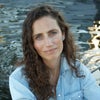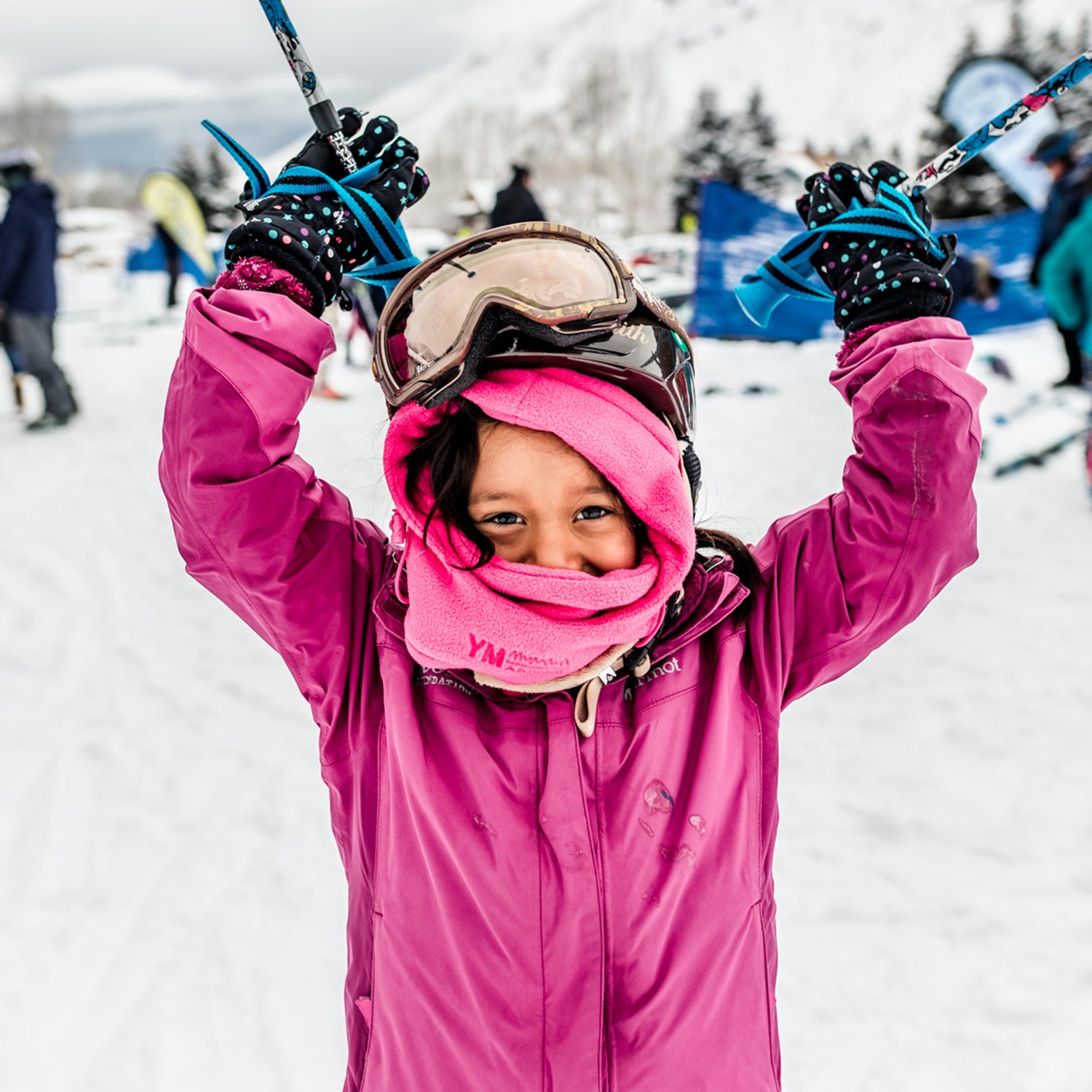On a clear blue day in Utah, 22-year-old Diana Zuniga��is stripping her skins and clicking into her skis, but her mind is somewhere else. “I might not have a job in two years.��I’ll have to leave the country, it’s scary,” says Zuniga, a Dreamer. She’s��unsure of her immigration status under the Trump administration, because her family moved to Utah from Mexico in 1998.��“But you have to focus on the positives,” she says as she glides off along a snowy ridge, carving powder turns.
That hard-to-find freedom is what��Hilary Byrne and Sophie Danison capture in their film . The documentary shows how immigrants are woven into the economic and social fabric of ski towns,��why immigration reform is so complicated,��and that regardless of where people come from, we all want fresh air and a place for our families to move their bodies and feel safe.
“Teton County would shut down without an immigrant workforce,” says , a law and ethics professor at University of Wyoming��who published a 2018 report on the impact of immigration on Jackson Hole’s economy. “Young ski bums don’t want to do the work that it takes to run a resort community—citizens born in the U.S. aren’t cooking in restaurants or cleaning hotels rooms.” It’s a powerful statement, backed by the fact that the U.S. stands to lose $900 million in ten years due to deportation, according to the Center for American Progress.��The film’s impact comes from the stories of the people working those jobs, keeping those towns running, and trying to make a life in the mountains. Zuniga, who learned to ski at Alta through , is working through physical therapy school. An unnamed��undocumented Mexican carpenter��in Jackson Hole wants a community for his kids. America Hernandez, a naturalized U.S. citizen who also immigrated from Mexico,��supported Trump and then realized his policies might take her away from her family and community.��
“It started around skiing, but as the year and a half went by, we realized it was a bigger story, and that we needed to go for it,” Byrne says.
The film tells a bigger story about policy, too. Danison and Byrne, who met in Jackson Hole while working on the 2014��ski film , had been brainstorming about how to use their experience with making outdoor films to address bigger issues. They spoke to Emily Coombs of the Doug Coombs Foundation in Jackson, which takes low-income kids skiing, and writer David Page, who wrote a 2016 article about for Powder, both of whom connected them with people impacted by immigration in Jackson and Mammoth Lakes.
“It’s relevant to what’s going on in our country, and it’s an industry we know,” Byrne says. They settled on the idea in October 2016, right before Trump was elected, and��the film took on a more immediate tenor. “It started around skiing, but as the year and a half went by, we realized it was a bigger story, and that we needed to go for it.”
They went to the Mexico-Arizona��border��and to Washington, D.C., to talk to Sarah Pierce from the Migration Policy Institute��about what potential pathways to immigration reform might look like. They talked to business owners, immigration lawyers in ski towns, and children of immigrants who are learning to ski (in part through the Coombs Foundation)��to show the concrete ways people who are a big part of the economy and community of ski towns are impacted.��The film shows��the fear that follows immigrants��who work in the service jobs that hold up tourist towns, or skiers like Zuniga, whose immigration status is��in the air. “It’s not radical,” Danison says. “We wanted to propose things that are rational and maybe resonate with people who are a little more in the middle.”
Danison says that they felt pressure around how to shape the film, especially as two white women. “I don’t think there was a time we were scared by the story, but the topic is big and intimidating,” she says. “We’re coming from this teeny tiny town of Jackson trying to tackle this big question that’s dense and rapidly changing. Everyone is going to have their own story about it.”
“We just want more people to go tell the story they see in their backyard,” Danison says. “It’s seemingly radical for people to start talking about this.”
They were surprised at how ready people were to tell their stories. “It’s incredible that some of the characters wanted to open up on camera, but I think they were feeling like they haven’t had a space to talk,” Byrne says. They made sure to be sensitive to the fact that appearing in their documentary could negatively impact their sources, but it was harder to talk major brands out of being scared off by potential blowback. After trying and failing to find sponsorship, they decided to self-fund the film. Through an Indiegogo campaign and fundraising events, they raised $50,000 and pulled in staffers who could help with logistics like website building and event planning.
“A cool added piece of it being community funded is that we knew that people were ready for this story,” Byrne says. “The industry wasn’t ready for it, which was discouraging in some ways, but by not having any corporate sponsors, we could go out on a limb, touch on policy, and tell a story that felt true.”
The women say that the response been positive so far, with the film winning the People’s Choice Award at 5Point Aspen Film Festival. Byrne says it’s resonating in mountain towns, because the scale and importance of an immigrant workforce is clear in places like Jackson and Mammoth, where people’s neighbors and coworkers are impacted. They filled the Center for the Arts in Jackson on their first showing, and a slew of people have reached out to bring it to their community. They’re hosting panel discussions about how people can be involved locally. Byrne says those discussions will��take a different form in each community. In Jackson, for instance, the conversation turned to and how business owners can respond to them. “We just want more people to go tell the story they see in their backyard,” Danison says. “It’s seemingly radical for people to start talking about this.”
Find out where you can see the film on tour .


